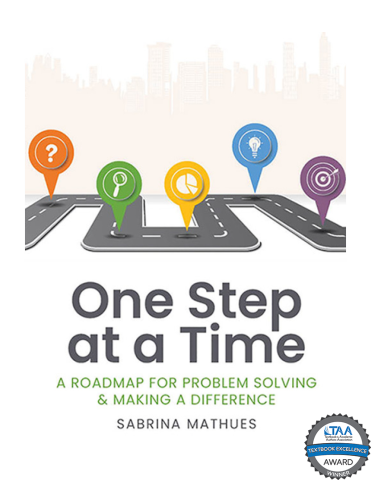Questions? Request Information
Shape Your Career and Change Lives
What is a Bachelor of Arts in Psychology?
A bachelor’s degree in psychology is an interdisciplinary program that introduces you to the scientific study of human behavior and the mind. From human behavior and research to data analysis and communication, a 100% online bachelor’s degree in psychology from the University of Arizona Global Campus will lay the foundation for a variety of careers.
Upon completion of the BA in Psychology degree program, you will be able to:
- Demonstrate breadth of psychological knowledge
- Analyze information and data with scientific thinking
- Defend ethics, social justice, and diversity
- Illustrate professional communication skills
- Apply professional skills to career planning and success
UAGC Award-Winning Curriculum
Military Students $250.00/credit
Undergraduate Courses $460.00/credit
Technology Fee** $115.00/course
Books and Other Class Materials** $125.00/course

UAGC offers enrolled students access to ScholarshipUniverse, a platform that tailors external scholarship opportunities to your unique situation, making it easier to find and apply for scholarships.
UAGC is proud to provide reduced tuition rates for our academic and corporate partners, helping community college transfer students and corporate employees earn their degrees with less financial burden.


Course Overview
To earn your Bachelor of Arts in Psychology at UAGC, you must complete 120 credits. You will need to complete 30 upper-division credits, of which 18 credits must be from the major program. A total of 30 credits must be completed at UAGC to meet the residency requirement. You may be able to transfer approved credits from community colleges, other previous college coursework, or other life experiences such as military service or job training toward your degree.
*In this program, 6 credits from the major may also satisfy General Education requirements.
Successful completion of this program by itself does not lead to licensure or certification in any state, regardless of concentration or specialization. The Bachelor of Arts in Psychology is not a licensure program and does not prepare an individual to become a licensed psychology professional. Further, the University of Arizona Global Campus does not guarantee that any professional organization will accept a graduate’s application to sit for any exam for the purpose of professional certification. Students seeking licensure or certification in a particular profession are strongly encouraged to carefully research the requirements prior to enrollment. Requirements may vary by state. Further, a criminal record may prevent an applicant from obtaining licensure, certification, or employment in this field of study.
Certain degree programs may not be available in all states.
The Online Teaching Support Certification recognizes programs that require all online faculty to undergo training in best practices for online course delivery, provide faculty with ongoing pedagogical support, encourage faculty professional development to increase their knowledge and skill in online teaching, emphasize instructor availability and feedback to learners, and collect and use feedback from learners to improve online teaching. Learn More

The Online Learner Support Certification recognizes programs that provide all the critical student and academic services needed for learner success and use learner feedback to continuously improve those services.

What Can I Do With a Degree in Psychology?
As an undergraduate psychology major, some of the career paths you may choose to pursue include:
- Case Manager
- Family Resource Coordinator
- Youth Services Specialist
- Community and Social Service Specialist
- Research Assistant
- Store Manager
- Human Services
- Education
- Business
Your degree in psychology can work in a variety of fields, including education, business, health care, and social and human services. Furthermore, if you have also acquired several years’ experience in business and industry, you can obtain jobs in consulting and marketing research.
Gain insights into the psychology job market by reviewing the Bureau of Labor Statistics market outlook report.
My psychology classes really helped me become the best manager I could be and helped me understand the type of leader I wanted to be. Classes like organizational development helped me become a better leader. My lifespan development class helped me understand the needs of people throughout their lives, and learning all of that has really helped me.
BA in Psychology FAQs
-
Majoring in psychology can open the door to a variety of careers and provide you with a foundation for further graduate study. Additionally, working in the field of psychology can be fun, rewarding, and challenging. A few additional benefits to majoring in psychology include:
- Learning how to predict and understand the behavior of people
- Learning more about yourself and others
- Learning how to gather and interpret data
- Managing and navigating high-stress situations and environments
- Studying courses within psychology that you are passionate about
-
While many careers require further licensure, you can still find entry-level positions in fields like human resources, case management, or research with a bachelor's degree in psychology.
-
The online bachelor’s degree in psychology curriculum will encompass subjects like physiology, human development, group dynamics, and research and statistics, as well as current psychological therapies and theories. Your online psychology degree will also build on solid liberal arts foundations that can provide you with a well-rounded background in the skills needed to communicate your ideas and psychological research findings.
-
Joining psychology clubs, participating in research projects, or interning in psychology-related fields can enrich your education and provide valuable experience for your future career.
-
Yes, you can pursue advanced degrees in psychology! UAGC offers both a Master of Arts in Psychology program and a Doctorate in Psychology program, and our Bachelor’s in Psychology prepares you to enter an advanced degree program.
-
Earning a BA in Psychology online can offer several benefits, but it's important to carefully consider your goals and learning style to determine if this mode of education is the right fit for you. Here are some of the advantages of pursuing an online bachelor's degree in psychology at UAGC:
- Flexible Online Classroom: Discover an online classroom experience that gives you the flexibility to create your schedule in order to complete the needed coursework. You will have access to 24/7 online support and service along with all the tools and technology needed for you to successfully complete your psychology program coursework.
- Educational Format: Take courses that are five weeks long, one class at a time. Pursuing your bachelor’s degree in psychology online can give you options that a traditional classroom format doesn’t allow. Instead of taking multiple classes all at once, explore the option of taking one class at a time that works within your current life schedule.
- Qualified Faculty: You will be taught by psychology faculty that have the necessary real-world experience and top academic credentials that will allow you to learn the latest concepts and theories in the field of psychology.
See What Else UAGC Has to Offer
Questions? Request More Information
*
These tuition costs are estimated based on average undergraduate students; rates are not guaranteed.
**
The Technology Fee covers access to University systems such as the online classroom, the Student Portal, and other academic resources. The Technology Fee and the Course Digital Materials (CDM) Fee are fully refundable if a student does not attend beyond Day 3 of a course (Week 3 if covered under the University of Arizona Global Campus Promise Refund Schedule). After this time, the fee becomes non-refundable. Students are charged the Technology Fee for repeated coursework. Students are not charged the CDM fee for repeated coursework if previously charged.






